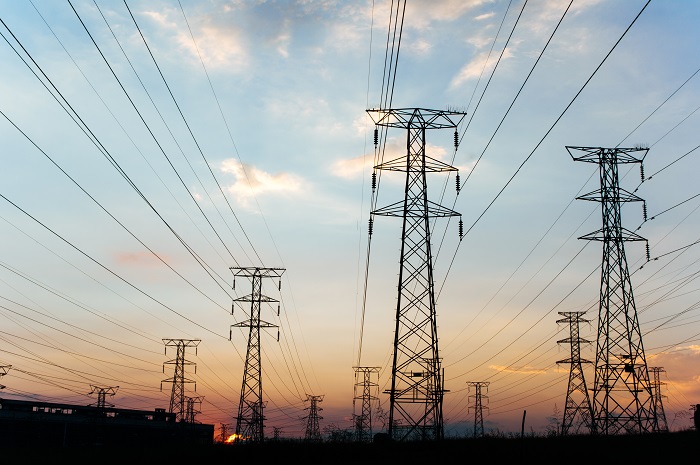headline news breaking news
By Ali Bekhtaoui & Isabel Malsang
European electricity prices soared to new records on Friday, presaging a bitter winter as Russia’s invasion of Ukraine inflicts economic pain across the continent. breaking news
The year-ahead contract for German electricity reached 995 euros ($995) per megawatt hours while the French equivalent surged past 1,100 euros — a more than tenfold increase in both countries from last year.
In Britain, energy regulator Ofgem said it would increase the electricity and gas price cap almost twofold from October 1 to an average £3,549 ($4,197) per year.
Ofgem blamed the increase on the spike in global wholesale gas prices after the lifting of Covid restrictions and Russian curbs on supplies.
The Czech Republic, which holds the rotating European Union presidency, announced Friday that it would convene an EU energy crisis summit “at the earliest possible date”.
Energy prices have soared in Europe as Russia has slashed natural gas supplies to the continent, with fears of more drastic cuts in the winter amid tensions between Moscow and the West over the war.
One-fifth of European electricity is generated by gas-fired power plants, so drops in supply inevitably lead to higher prices.
European gas prices on Friday reached 341 euros per MWh, near the all-time high of 345 euros it struck in March.
The war is not the only culprit in France.
The shutdown of several nuclear reactors due to corrosion issues has contributed to the French electricity price increase as power production has dramatically decreased in the country.

Only 24 of the 56 reactors operated by energy giant EDF were online on Thursday.
France, which traditionally exports electricity, is now an importer.
“Winter is going to be a tough period for all the countries in Europe,” Giovanni Sgaravatti, research assistant at the Bruegl think tank in Brussels, told AFP.
“Prices will stay high, possibly they can even go higher,” he said.
- Recession ‘probably unavoidable’ –
A Bruegel study found that European Union countries have allocated 236 billion euros from September 2021 to August 2022 to shield households and firms from rising energy prices, which began to increase as countries emerged from Covid restrictions and soared after the war.
In recent days and weeks, countries have announced energy savings campaigns to encourage the public to reduce power consumption during the winter.
Germany announced Wednesday that the temperature of public administrative offices this winter would be capped at 19 degrees Celsius (66 degrees Fahrenheit) while hot water would be shut off.
The German measures also include a ban on heating private swimming pools from September and over the six months that the decree is in place.
Finland is encouraging its citizens to lower their thermostats, take shorter showers and spend less time in saunas, a national tradition.
French households are shielded by an energy price cap until December 31 for now.
Industries are also affected by the soaring energy prices.
Factories that produce ammonia — an ingredient to make fertiliser — announced the suspension of their operations in Poland, Italy, Hungary and Norway this week.
HSBC bank warned in a note that “recession is probably unavoidable” in the eurozone, with the economy shrinking in the fourth quarter and the first three months of 2023.
alb-im-ico/lth/jv
© Agence France-Presse. All rights are reserved.
headline news breaking news
Notes from APS Radio News
A number of economists and analysts have concentrated on the policies that were imposed during the past few years.
For example, reportedly because of what was being called pandemic, many countries imposed lockdowns and harsh restrictions.
As a consequence of lockdowns, a number of small and medium-sized businesses were shuttered.
Many of those businesses never opened again.
By October 2020, in the US, for instance, over 100,000 businesses had been shuttered as a result of those policies.
Restrictions not only affected brick and mortar businesses.
As well, those caused delays at shipping ports in developed countries like the UK and the United States.
headline news breaking news
Happening concomitantly were programs that infused many trillions of dollars into a number of economies.
For example, in the US, from the early part of March 2020 to the beginning of this year, the Federal Reserve increased its holdings by over $4 trillion.
In particular, the Federal Reserve purchased billions of dollars of corporate and government bonds each and every month during that period.
When the central bank makes such purchases, in effect, money is added to the economy.
For its part, during the same period, the European Central Bank purchased over $3 trillion worth of government and corporate bonds, also greatly adding money to the economy.
The Bank of Japan added over $1 trillion to its holdings from March 2020 to the begining of the year.
As well, when money is added at a comparatively high rate of velocity, and when the amount of money added to economy is massive, the likelihood of greater inflation is increased.
The combination of shortages of various goods and service, shortages caused by lockdowns, and expansive monetary policies, has increased inflation substantially, according to those economists.
While the war in the Ukraine, embargoes imposed by the European Union and by Russia have contributed to higher rates of inflation, higher levels of inflation were noticed months before Russia commenced its invasion in February.
headline news breaking news


